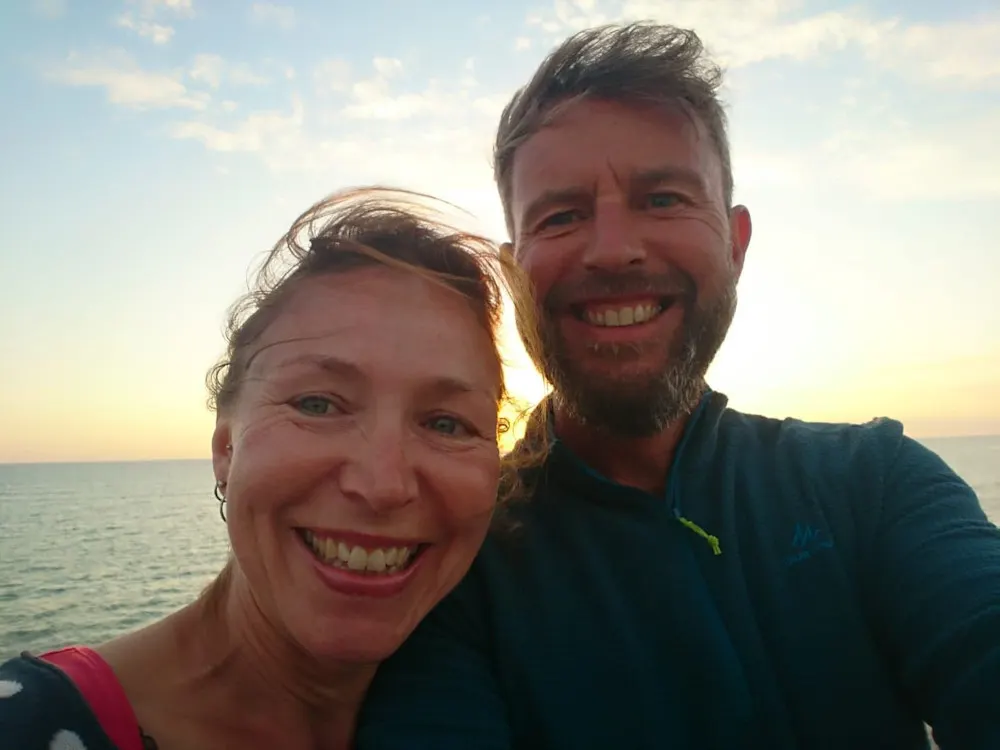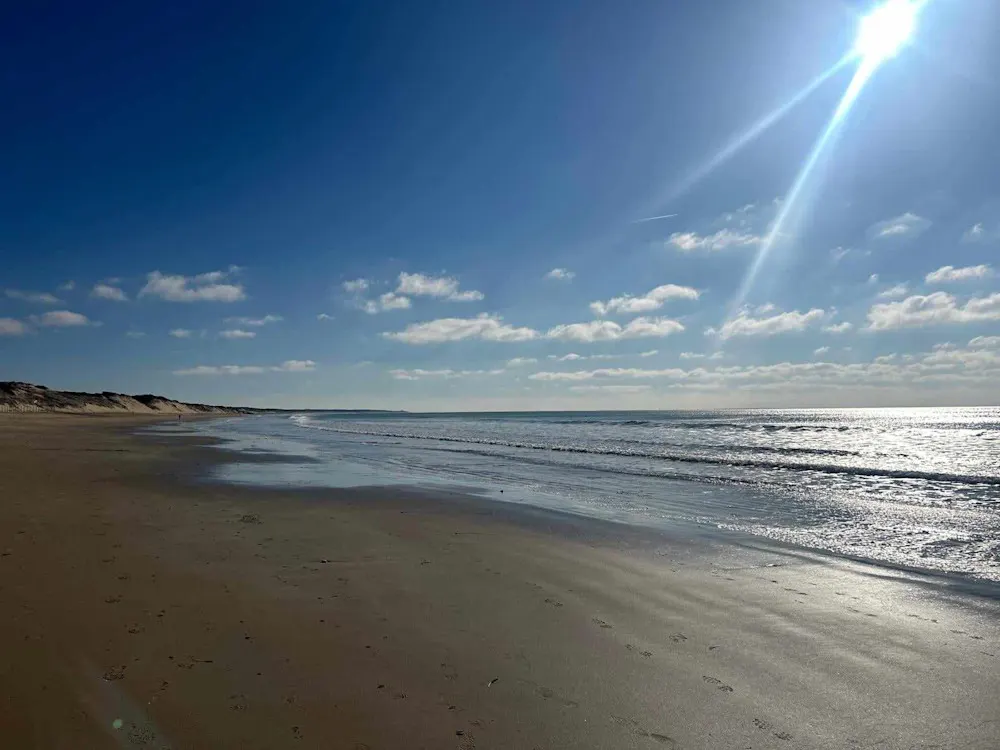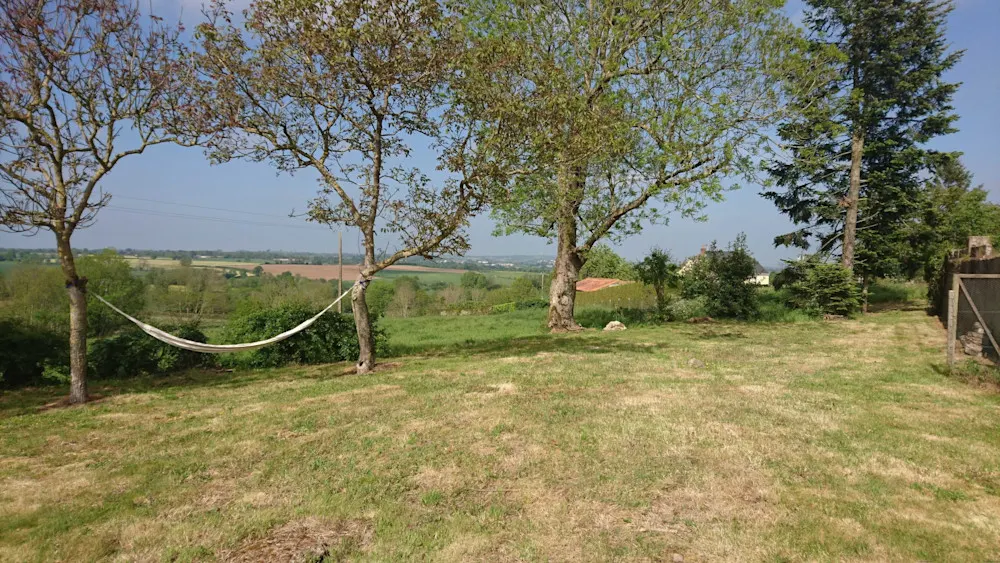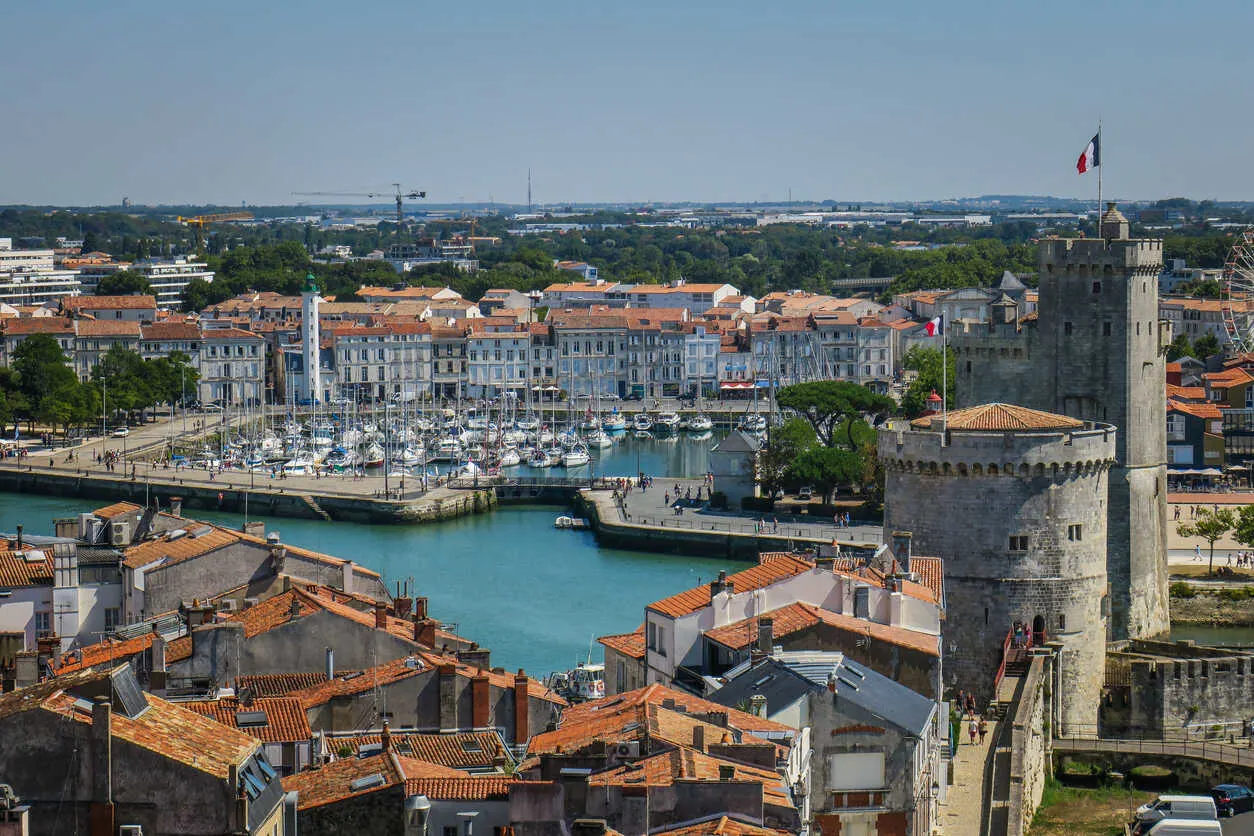Moving to France wasn’t part of my plan. Traveling there, maybe—but settling down? Never. Having spent my childhood in Scotland and most of my adult life in England, the only time I’d been to France was a camping trip to Brittany when I was eight. Now, settled here, it’s hard to imagine ever going back.
Get Your Free France Report Here
Get Your Free France Report Here
Learn more about France and other countries in our daily postcard e-letter. Simply enter your email address below and we’ll send you a FREE REPORT: A Taste of France: All the Ingredients for the Good Life.

By submitting your email address, you will receive a free subscription to IL Postcards, Overseas Dream Home, The Untourist Daily and special offers from International Living and our affiliates. You can unsubscribe at any time, and we encourage you to read more about our Privacy Policy.
Moving to France: Why I Left the UK Behind
Sixteen years ago, I was living just outside Manchester, working as an interior designer. My daughter was 11 months old, and I was pregnant with my son. Despite loving my job, I wasn’t happy. The area felt overcrowded and unsafe, with crime steadily on the rise. I wanted a better environment to raise my children.
My mother had already been living in France for three years, so I decided to join her. Without overthinking, I hired a van, packed up our belongings, and moved us to what felt like the middle of nowhere—the Creuse, a small, quiet department in central France.

Looking back on those early years in the Creuse, I realize I was so busy caring for two young children that I didn’t fully appreciate the place. As pretty as it was, the region felt a bit too quiet and isolated.
Fortunately, we had wonderful neighbors, one of whom became my son’s godmother. She helped me navigate the daunting French paperwork in the beginning, and I couldn’t have managed without her. Having a native speaker guide you through the system is invaluable. French administration is notoriously challenging—even the French find it difficult!
But I made good use of those first few years in the Creuse by learning the language, one of the biggest barriers to retiring in France. Achieving fluency required time, effort, and hard work, but it was essential for making the most of life here.
A New Chapter in the Vendée
Today, I live in the Vendée, a vibrant region on France’s west coast with much more to offer than my earlier home in the Creuse. After leaving that chapter behind, I purchased a charming old house here for €150,000. Twelve years on, I’m still renovating it. While I love the character of the property, the work seems endless—a reminder of why many French buyers opt for new homes instead of older ones.
If you’re considering buying an old house, it’s worth remembering that projects often come with hidden surprises. What looks like a quick paint job or replacing a few windows can reveal deeper, costlier issues. If you’re skilled at DIY, it can be rewarding, but for bigger jobs requiring electricians, plumbers, or joiners, the costs can quickly escalate.
Take my heating system, for example. What seemed like a basic setup turned out to be non-functional. Replacing it cost around €15,000—a hefty but necessary expense.
For many expats, France’s appeal lies in its lower cost of living. While property prices here remain more affordable than in the UK, especially inland, other costs—like food and utilities—have risen over the years. Coastal areas, including the Vendée, tend to be pricier, but moving inland can reveal more budget-friendly options.
Grocery prices have also climbed sharply in recent years. I prefer to shop at local markets for fresh produce, which, while not always cheaper than supermarkets, offers superior quality. With two teenagers at home, we spend about €250 a week on groceries.
France’s healthcare system is renowned, but finding a doctor can sometimes be challenging. Despite paying €160 monthly for health insurance, we’ve had to rely on teleconsultation services at our local pharmacy while waiting for a permanent doctor.
Our monthly expenses average around €2,000, covering essentials like electricity (€300), water (€50), house insurance (€200), groceries (€1,000), phone services (€150), and house tax (€180), though costs can vary month to month depending on additional needs like fuel, heating, or school fees.
These figures are just an average and can vary from month to month. Additional costs, such as fuel, heating, rent, school fees, or extra insurance, should also be considered when planning your budget.
From Quiet Beaches to Bustling Towns

One of the best parts of living here is the proximity to miles of sandy beaches, bordered by vast stretches of ancient woodland. The region boasts hundreds of cycling paths and walking trails. In summer, towns like La Tranche-sur-Mer and Les Sables-d’Olonne are lively hubs, but for most of the year, you can walk for miles without seeing another soul.
On blustery days, I love loading the dogs into the car and heading to the beach. There’s a wonderful sense of freedom and space, especially when the tide is out. The dogs love it, too!
Since moving to the Vendée, I’ve taken up the clarinet—a dream I’d long postponed. Three years ago, I joined an ensemble, and we now practice weekly for an end-of-year concert.
Another favorite activity is a day trip to La Rochelle, just an hour away. This picturesque town is perfect for strolling along the port, browsing boutiques, or dining in its many restaurants. A quick lunch costs around €25 for two courses.
A Typical Day in the Vendée

My days start early, taking the kids to catch the lycée bus. I walk the dogs in the morning and evening, keeping active while enjoying the fresh air. During the day, I work from home as a writer and occasionally head into town for errands. Evenings are often spent cooking and preparing meals.
Weekends involve cycling, weather permitting, or attending local events—recently, a film festival and Christmas markets. I make an effort to explore new places and catch up with friends.
I’ve lived in various regions across France since moving here, each with its own charm and set of challenges. Yet, I’ve come full circle back to the Vendée, drawn by the qualities that make it truly special. Walking along the vast, empty beaches in winter brings an unmatched sense of freedom, and despite its tranquil atmosphere, the Vendée remains well-connected—perfect for spontaneous day trips or catching a flight.
The sense of community here is equally reassuring. Neighbors, while generally private, are always willing to lend a hand when needed. These small acts of kindness foster a natural connection—often sealed with a heartfelt thank-you and a bottle of homemade wine.
Before You Move

For anyone considering a move to the Vendée, or France in general, I strongly recommend experiencing the region in both winter and summer. The pace of life shifts dramatically with the seasons, and those expecting summer’s lively atmosphere year-round may find the quieter winters challenging.
I’ve seen people make this mistake, only to return home because they missed the social connections they were used to. I’ve been fortunate to build friendships with both English-speaking and French neighbors, but this wouldn’t have been possible without learning the language—a crucial step for truly settling in and feeling at home.
Moving to another country was a life-changing decision, even if I didn’t fully realize it at the time. Occasionally, I wonder how things might have turned out had I stayed in the UK. While I miss friends and family, staying connected is easier than ever, and I visit whenever I can.
Still, I stand by my choice. Creating a better life for my family has been worth every challenge. My children are bilingual, which is a significant advantage, and they’ve grown up immersed in two cultures, learning to appreciate different perspectives. While I sometimes feel a pang of homesickness or nostalgia, I wouldn’t trade the life I’ve built in France or the freedom it offers.
The World’s Best Retirement Havens for 2026
The World’s Best Retirement Havens for 2026
24 Countries Compared, Contrasted, Ranked, and Rated. You don’t have to be rich to enjoy a pampered retirement, you just need to know where to go. With our 35th Annual Global Retirement Index, our experts hand you a detailed roadmap. Details—and a Special Offer—Here

By submitting your email address, you will receive a free subscription to IL Postcards, Overseas Dream Home, The Untourist Daily and special offers from International Living and our affiliates. You can unsubscribe at any time, and we encourage you to read more about our Privacy Policy.
